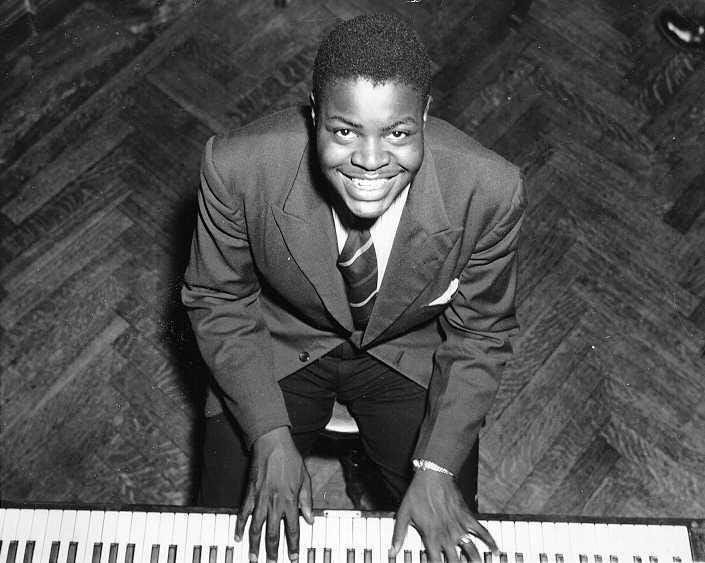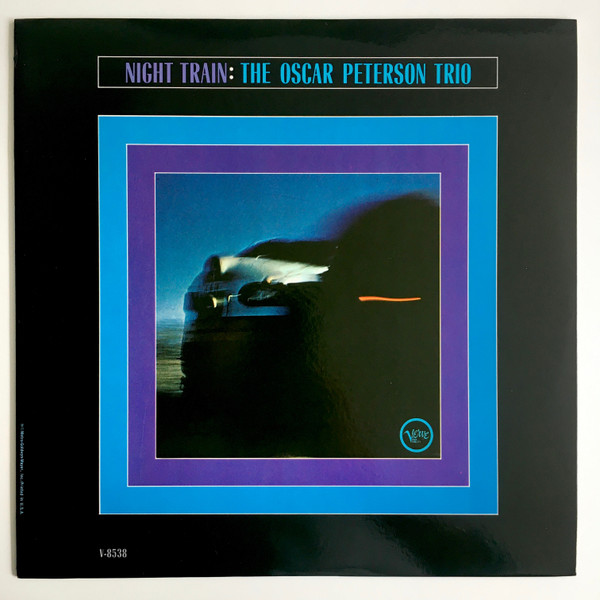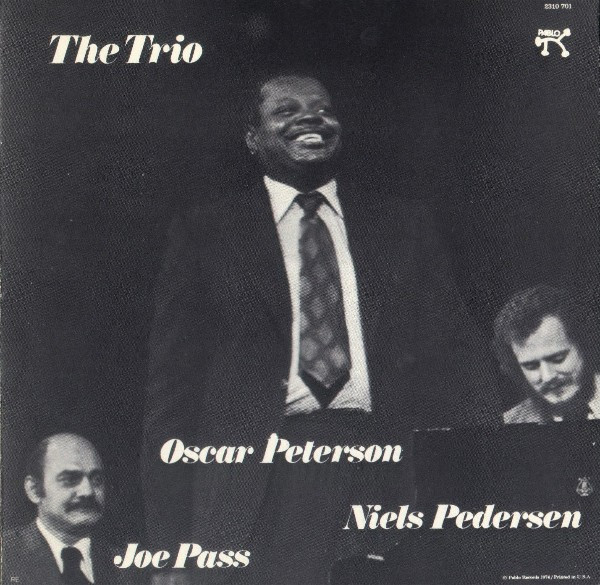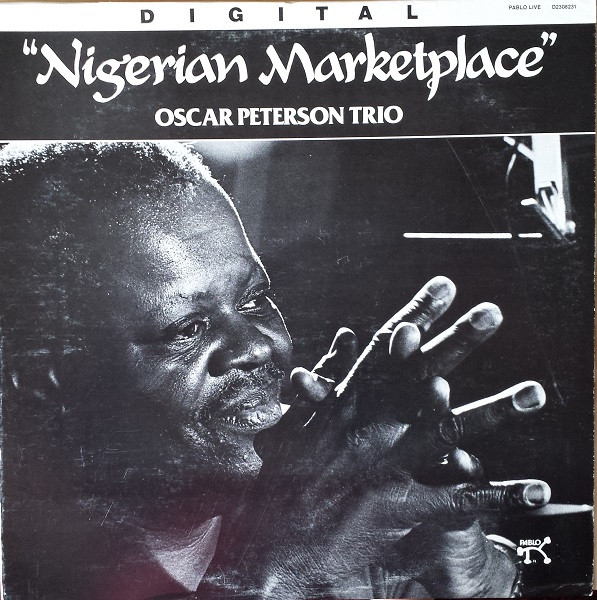Top 5 Oscar Peterson Albums
In the illustrious realm of jazz, few pianists have left an indelible mark as profound as the legendary Oscar Peterson. Born and raised in the vibrant city of Montreal, Peterson's musical journey began at the tender age of five, a precocious start that foretold the brilliance to come. By the age of nine, he astounded professional musicians with his prowess, and at 14, he embarked on a professional career that spanned more than six decades, leaving an enduring legacy as the "master of swing" and the "Maharaja of the keyboard," as proclaimed by Duke Ellington.

Peterson's incredible dexterity, speed, and ornate technique on the keys make it seem as if he's playing with four hands. His love and dedication to his craft are palpable in every note, earning him seven Grammy Awards, the Order of Canada, the Order of Ontario, and a place in the Canadian Music Hall of Fame. With over 200 published recordings to his name, navigating his vast body of work might seem like a daunting task, but fear not. Here are five standout albums that offer a captivating journey into the genius of Oscar Peterson.
Top 5 Oscar Peterson Albums
- "Oscar Peterson Plays Duke Ellington" (1952)

The year is 1952, and Oscar Peterson takes the stage with an album that would set the tone for his playful yet masterful approach to jazz. "Oscar Peterson Plays Duke Ellington" is not merely a collection of covers; it's a testament to Peterson's innate musicality and creative prowess. He retains the essence of Ellington's compositions while infusing them with a fresh perspective, showcasing a whole new side of their potential. This album serves as the perfect introduction to Peterson's signature speed and playfulness, establishing him as a force to be reckoned with in the world of jazz.
If you are interested in learning music check out our Music Lessons in Denton.
- "Night Train" (1963)

Fast forward to 1963, and we find ourselves on the "Night Train" with one of Peterson's most popular and commercially successful albums. Known for keeping the songs short and radio-friendly, "Night Train" features the iconic Oscar Peterson Trio, with bassist Ray Brown and drummer Ed Thigpen. The album is a rollercoaster of jazz emotions, from the fantastically fun "C Jam Blues" to the nostalgic sounds of "Georgia on My Mind" and the laidback groove of "Bag’s Groove." "Night Train" not only showcases Peterson's technical prowess but also his ability to create accessible and enjoyable jazz that resonates with a wide audience.
- "My Favorite Instrument" (1968)

In 1968, Peterson takes a bold step into the spotlight with "My Favorite Instrument," his first solo album. Stripped of accompaniment, we witness a virtuoso at play, unencumbered by other instruments, allowing us to savor every nuance of his style and technique. This album is a joyous celebration of Peterson's ability to explore, play, and reinvent jazz classics. In this intimate concert, the listener becomes a privileged audience member, immersed in the intricacies of Peterson's musical genius. "My Favorite Instrument" stands as a testament to the power of a single piano and the brilliance of the man behind it.
- "The Trio" (1974)

Following a three-year hiatus from ensemble playing, Oscar Peterson makes a triumphant return with "The Trio" in 1974. This Grammy-winning album features Peterson alongside guitarist Joe Pass and bassist Niels-Henning Ørsted Pedersen. The result is a dynamic and emotionally charged recording that highlights Peterson's inventiveness and sincerity. "The Trio" takes the listener on an exhilarating journey through jazz landscapes, where each musician contributes to the collective brilliance of the ensemble. The chemistry between Peterson, Pass, and Pedersen is palpable, creating an exciting, emotional, and honest musical experience.
- "Nigerian Marketplace" (1981)

As we reach the pinnacle of Peterson's career in 1981, we find ourselves at the Montreux Jazz Festival, witnessing a maestro at the height of his musical maturity. "Nigerian Marketplace" offers a glimpse into Peterson's evolution as a musician, marking 40 years of professional playing. Recorded live, the album treats us to a captivating medley of "Misty" and "Waltz for Debbie," showcasing Peterson's ability to captivate and mesmerize an audience. Notably, "Nigerian Marketplace" unveils the debut of "Nigerian Marketplace," the first section of an extended work known as the "Africa Suite," a testament to Peterson's enduring creativity and commitment to pushing the boundaries of jazz.
In conclusion, the brilliance of Oscar Peterson extends far beyond the piano keys; it transcends time and musical boundaries. Each of these five albums offers a unique glimpse into the multifaceted genius of a man who dedicated his life to the art of jazz. As you embark on your journey through Peterson's discography, let the melodies guide you, and may the harmonies of his music resonate in your soul. Oscar Peterson's legacy is not just a collection of recordings; it's a timeless testament to the enduring magic of jazz.
To fully appreciate the genius of Oscar Peterson, one must delve beyond the albums and into the vast tapestry of his live performances and collaborations. Peterson's live shows were legendary, where the audience became witnesses to the spontaneous brilliance that unfolded on stage. His collaborations with other jazz luminaries, such as Ella Fitzgerald and Count Basie, added new dimensions to his already multifaceted artistry.
As you continue your exploration of Peterson's catalog, consider the hidden gems and lesser-known recordings that showcase his versatility. Dive into the intricacies of his improvisations, where each note becomes a conversation between Peterson and his instrument. The spontaneity of live recordings reveals a musician who thrived on the energy of the moment, captivating audiences with his unmatched virtuosity and infectious enthusiasm.
Oscar Peterson's impact on the jazz landscape is immeasurable, and his influence continues to reverberate through the work of countless contemporary musicians. Whether you find solace in the melancholic strains of "My Favorite Instrument" or groove along to the upbeat rhythms of "Night Train," each album is a chapter in the story of a man who dedicated his life to the pursuit of musical excellence.
If you like this check out our article: Best Cover Songs of All Time
